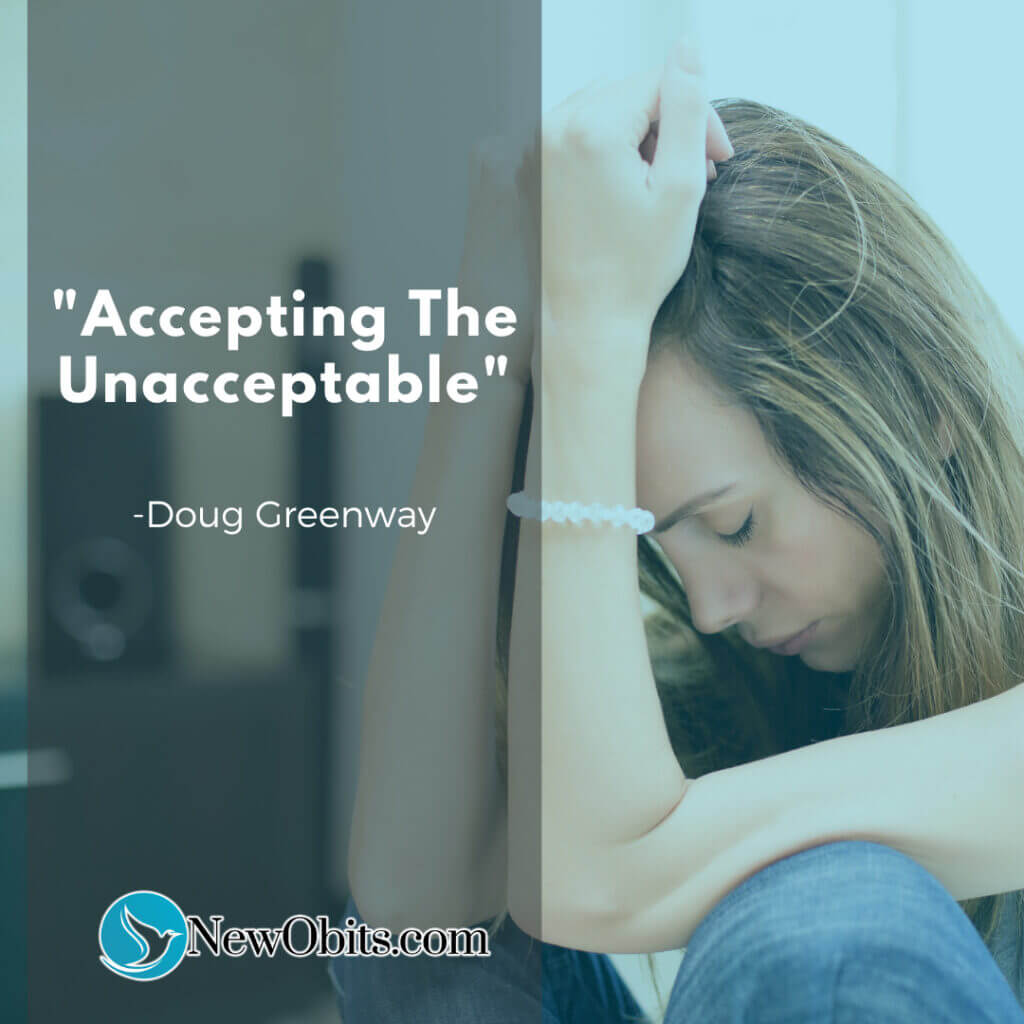
Anne Lammott said, “You will lose someone you can’t live without, and your heart will be badly broken, and the bad news is that you never completely get over the loss of your beloved. But this is also the good news. They live forever in your broken heart that doesn’t seal back up. And you come through. It’s like having a broken leg that never heals perfectly — that still hurts when the weather gets cold, but you learn to dance with the limp.”
Some things I have endured in life are not approved or endorsed by me and I will never get over them. We are all damaged goods and fellow strugglers. Each one of us have plenty of anecdotes of unwanted change we have been forced to accept.
How do you ACCEPT THE UNACCEPTABILE?
#1 = You must define acceptance. My dictionary says that acceptance can mean to regard as proper, normal or inevitable; to recognize as true. Sometimes in dealing with bad news, the best we can do is recognize that the prognosis and assessment of situations are true — but we don’t have to like new news in order to accept it!
The goal of accepting the unacceptable means getting to the point in emotional recovery where we acknowledge our reality without shock, denial, or resistance. It doesn’t mean we are pleased about the situation or no longer care about our losses. It does mean that we have come to a place in life where we can face our truths and stare them in the eye.
Life in a new normal will not be without its struggles. But the problems are multiplied when someone experiences a loss and keeps trying to hold on to their version of life like it used to be.
#2 = You and I must learn to accept our emotions.
The word “explore” our emotions comes to mind. Exploration requires curiosity and a willingness to try different paths to get to where we need to go in life. Just naming the emotions we are going through seems to help our feeling them.
A word is a feeling if the phrase “I feel ____” can be replaced with “I am ____” Once your feelings are identified, try not to judge them harshly. Feelings are feelings. Here’s where a therapeutic helper comes in. Having our emotions validated is a powerful part of the healing experience. “You’re so sad.” Yes. “This is such a hard thing.” Yes. “You really miss him.” Yes.
Validation of feelings really make the sufferer aware that they have been heard, understood and supported. Validation does NOT include statements that try to push or nudge us into a more positive place. E.g. = “At least he didn’t suffer.” “He’s in a better place.” “You should be over this by now.”
#3 = CHOOSE feelings that lead you into the more positive direction you should go with life after loss.
Will you accept the unacceptable or not?
It’s your move.

Doug Greenway
These blog articles are written by the retired minister and former educator and counselor, Doug Greenway. He'd love to hear from you with your comments, questions, or suggestions for future topics. You may reach Doug at doug_greenway@yahoo.com.
